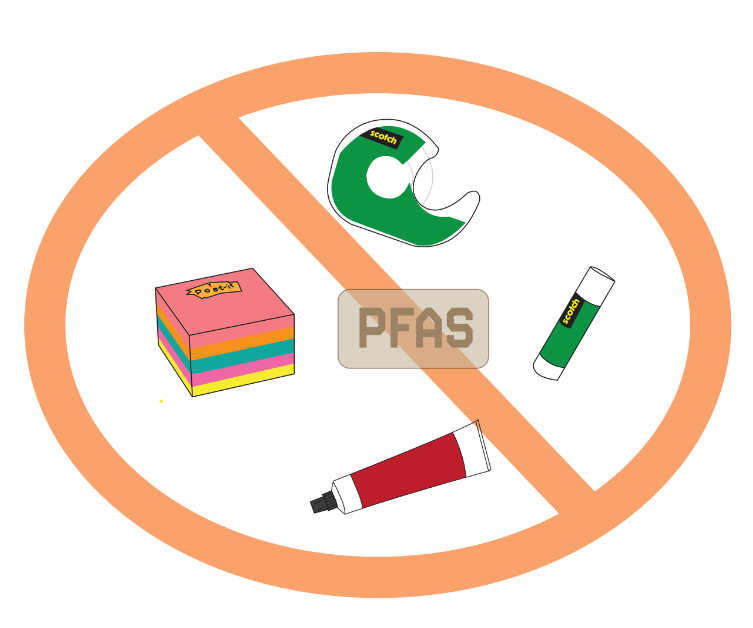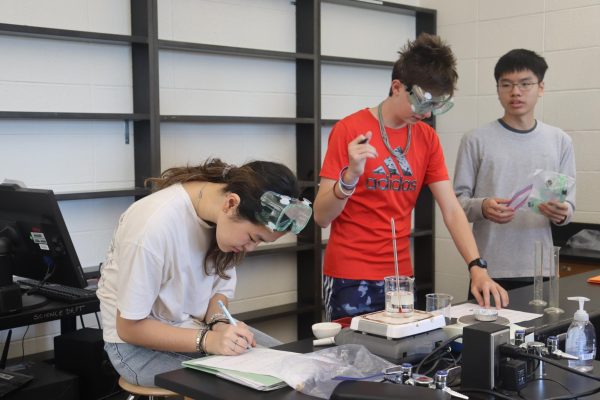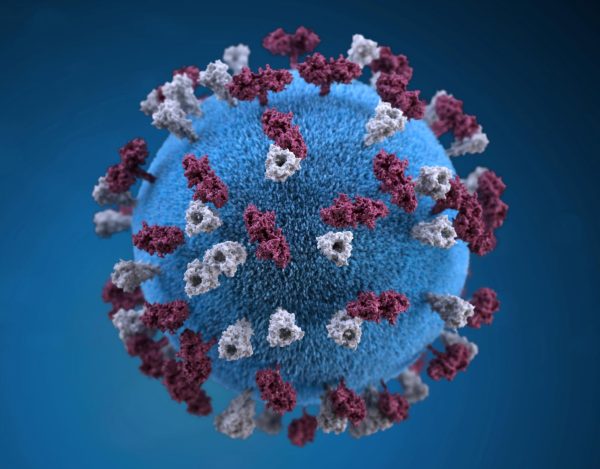3M to stop production of “forever chemical” PFAS by 2025
A popular conglomerate called 3M plans to stop production of PFAS in efforts to make the world more sustainable.

When using a Post-It, most people don’t consider the science behind its stickiness. The average passerby usually won’t wonder why umbrellas can resist water or how their nonstick cookware stays slick and clean, either. So, it may come as a surprise to many that these functions come from the same group of man-made chemicals: per- and polyfluoroalkyl substances (PFAS). Despite being in virtually every type of product one can imagine—from food packaging to spacecraft to school supplies—PFAS have gone generally unknown by the public, as do their adverse effects to human health and the environment. Fortunately, in the past year, conglomerates, manufacturers, and state government legislators have begun working towards ridding PFAS of their products, including the major conglomerate 3M.
Although most people have never heard of PFAS, chances are that a great majority of Americans have come in contact with them before; according to a 2015 report published by the Centers for Disease Control and Prevention’s National Health and Nutrition Examination Survey, PFAS were found in the blood of 97% of the American population. Known as “forever chemicals,” PFAS can exist in an environment for an undetermined length of time because they don’t break down easily. This includes the human body, where PFAS accumulate following a human’s exposure to contaminated soil, water, or air, or interaction with products. The bioaccumulation of PFAS has been linked to an increased risk of cancer and damage to the kidneys, liver, and thyroid glands, though the full extent of their effect hasn’t been confirmed.
First emerging in the 1930s and 1940s, PFAS quickly became popular for their capacity for stain removal and heat, oil, grease, and water resistance. Although several U.S. manufacturers have already phased out PFAS, the chemicals are still in widespread use, with more than 9,000 unique chemicals identified in 64 industrial areas. Sophomore Felicia Granel, who when learning about PFAS, said, “I find it concerning that these chemicals are still in so many products.”
3M is well known for their consumer products targeted towards students and workers, which include Post-Its, adhesives, personal protective equipment, and Scotch cleaning supplies (all of which use PFAS). In December 2022, they declared their decision to remove PFAS in their products by 2025, as part of an effort towards “accelerating regulatory trends focused on reducing or eliminating” chemicals in the environment. Although 3M has not yet specified how they would eliminate the chemicals, they note that they have already begun the process of removing PFAS in some products and will work to discontinue all PFAS manufacturing.
Following years of anti-PFAS activism, environmental groups commend 3M’s decision and are currently anticipating similar acts of environmental awareness from other companies in the future. Junior Bakhsish Kaur said, “It’s great that they’re starting the process of eliminating the chemicals. I hope other companies use them as an example.”
“The idea that [3M and other manufacturers] are finally beginning to move away from PFAS and be more transparent with their consumers is definitely a positive development that I’m excited to see,” junior Kaia Lain, co-president of Save Planet Earth club, said. “I think raising awareness around the potentially harmful things that large companies put into their products would at least allow more people to make more productive choices about what companies they’re supporting.”
Though optimistic about the situation, she expressed some skepticism: “I’m hoping that in the future we can really see [this] happening because of how often we see companies saying they plan to become more sustainable, when, in reality, they don’t follow through with their goals.”
Your donation will support the student journalists of The Classic. Your contribution will allow us to purchase equipment, support our extracurricular events, celebrate our staff, print the paper periodically, and cover our annual website hosting costs.

Rabtah Jinan is a senior at Townsend Harris High School. Her favorite activity is doing henna and perfecting her designs through practice. She loves gathering...

































Riya • Apr 17, 2023 at 2:40 pm
This article is incredible informative and important. Most students are most likely not aware of these “forever chemicals”, and just how dangerous they are. If they are so harmful and can damage so many organs, there should be more awareness about it. This article is a step to increase awareness about PFAS.